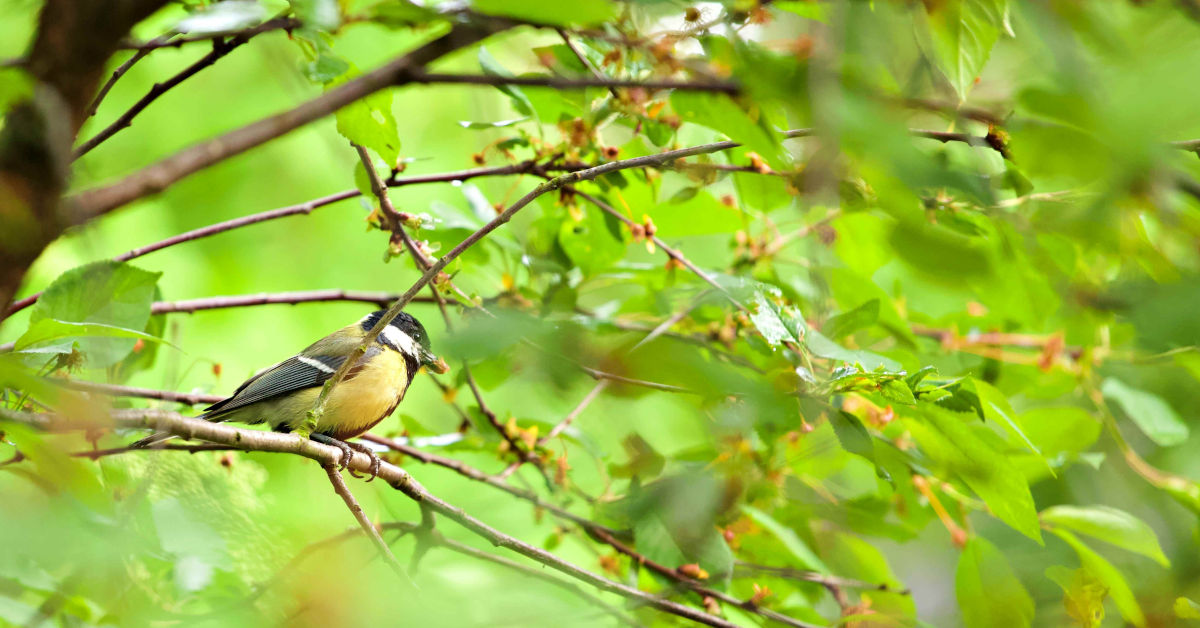Trees hold many powers: they suck harmful carbon dioxide from the air, they provide a home for a plethora of wild animals and they’re a crucial source of food for us and the creatures we share our planet with. But that’s not all. Trees can even be beneficial to our mental health, with a number of scientific studies finding that being in nature or living close to green spaces can actually improve mental health conditions like anxiety and depression.
We’re all feeling the effects of the pandemic. Whether we’re experiencing isolation during lockdown, worried about our health or that of our loved ones, or are at risk of losing job security, many of us are experiencing more stress, anxiety or depressed feelings than usual. In fact, a recent survey found that twice as many British adults are reporting symptoms of depression compared to the same time last year. With the UK and many other nations back in lockdown or under restrictions, it’s crucial we all look after our mental health.
The power of green spaces
There are many ways to boost our mental health, from exercising and eating healthily to seeking professional help by visiting the GP. One small thing you can do to help your mental health is spend some time in the company of trees. Research shows that spending time in green spaces can improve our mental health, reducing feelings of anxiety and depression. Even city-dwellers can reap the rewards by visiting local parks or woodlands.
A 2019 study led by scientists at Newcastle University discovered that living close to nature can significantly improve our mental health. Publishing their findings in the journal Applied Geography, they surveyed over 25,000 people and found that living 300 metres from a green space, park or nature reserve is enough to boost happiness, our sense of worth and life satisfaction. Another 2019 study, by Australian researchers, found that city trees can reduce our likelihood of experiencing feelings of distress and improve our overall health. They found that for people living in urban areas, residing in a neighbourhood with a tree canopy of 30 percent or more reduces our chance of developing psychological distress, such as feeling nervous, hopeless or fatigued, by a third. And it’s not just the presence of any green space that matters; trees were shown to be more beneficial to mental health than grassy areas with no trees.
The creatures that come with trees can benefit our mental health too. A study released in 2017 and published in the journal Bioscience found that living close to trees, shrubs and being able to watch birds can reduce feelings of depression, anxiety and stress. The more birds people could see, the better their mental health, highlighting that spending time close to nature and wildlife really can improve our mood.

Plant a tree and improve your wellbeing
While taking some time out for a woodland walk or doing a few laps of the local park can improve our mental health, actively getting green-fingered can too. A 2020 meta analysis that assessed the results of over 75 studies concluded that gardening and spending time in gardens is linked to improvements in general health and mental wellbeing. Not only is being surrounded by greenery beneficial, but the study’s authors note that the physical activity and social interaction that can accompany gardening are great for us too. So, if you’re struggling with the isolation of lockdown at the moment, why not get involved with your local gardening club? You could even volunteer for a tree-planting initiative and help not only yourself, but the environment too.
At The Word Forest Organisation, we know the importance of planting trees to help protect our environment and mitigate climate change. Trees pull carbon dioxide — which contributes to the greenhouse effect that causes climate change — out of the air and provide homes for wildlife, from the teeniest insects to birds, squirrels and bats. We focus on planting trees in the tropics, where they grow quickly and are particularly productive at drawing CO2 from the air, but we think there should be more trees everywhere! Whether it’s in your back garden or a community gardening space, you can do your bit for our environment by planting a tree or two. Getting outside and gardening could even open up new social avenues and help you feel better mentally at this trying time too.

A recent study found that just listening to the sounds of nature can help to calm our busy minds, so we’ve put together this selection of relaxing natural sounds to help you step back from the pressures of daily life with a quick click. Listen here.
Mental health tips and advice
While surrounding yourself in nature is a great way to relax and improve your mental health, there are lots of things you can do if you’re struggling at this time. If you’re suffering with your mental health, the best thing you can do is seek professional help — a quick call or trip to your GP could help you find a solution, such as talking therapy or medication.
There are also other small actions you can take. The NHS recommends the following 5 steps to help improve your mental health:
- Connect with others: whether it’s joining a gardening club or giving your friend a call, social interactions can be hugely beneficial to our mental health, particularly while many of us feel isolated during lockdown.
- Be physically active: even gentle exercise, like a walk in the park, can help our bodies deal with stress and anxiety and boost our mood through the production of endorphins.
- Learn new skills: lots of us have extra time at the moment and learning new skills, like baking or knitting, can give us a sense of purpose, raise our self-esteem and help us connect with others.
- Give to others: being kind and generous can make us feel great as it is hugely rewarding and helps us bond with other people.
- Mindfulness: paying attention to the present moment and becoming aware of our surroundings, thoughts and feelings, and body can help us relax. Learn more about mindfulness here.
If you feel you cannot cope and can’t wait to see a doctor, there are also a number of helplines available 24/7, such as Samaritans and the NHS helpline, who will talk with you without judgement or pressure.
Rachel Baxter and The Team



